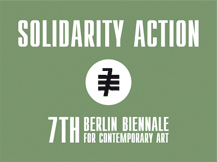The Hustler, a film from 1961 starring Paul Newman, seems to sum up the emotional tone of the present: the squandering of virtue. Paul Newman is a talented pool player, but incapable of managing and directing his skill. He is probably the best player in the world, but he is unable to gain any profit from this virtue, and it brings him no gain. His life seems to change when he meets a manager who promises organization, method, money. But it is immediately clear that the reasons of talent are not those of money, and there is a conflict between the virtue of the player and the speculations of the agent. Because Paul Newman’s manager is simply a parasite, a good gambler, in short a rentier gifted only with a talent for buying any tomorrow. He is the owner of “all the tomorrows”, because he is capable of “buying them today and buying them cheap”. Thanks to money, he is not just the owner of the virtue of the player he represents, of his life and its rules, but also the owner of his time. What is left of his virtue, for Paul Newman? Only the certainty of being able to squander it, subtracting it from any logic of profit. We are faced with a well-known paradigm in the art world: talent, ability, intelligence, virtuosity, on the one hand; management, commerce and profit, on the other. But isn’t this also a more general paradigm, that applies to all work done by talent and virtue, skill and ability, expertise and freedom? And thus to all knowledge work today? Virtue vs. income is the fault line of the present. Everywhere in Europe, governments of rentiers are on the rise. They represent the interests of those who make profits with a wager, of those who can buy all the tomorrows of the others, and buy them “cheap”. Virtuosi vs. gamblers, talent vs. finance. The squandering, the dissipation of virtue as the only forms of resistance and action of protest?
Maybe not. But here, on this front, we should find the institutions of art and culture. Deciding which side to take: that of the virtuous, or that of the speculators? To serve the governments of technicians, or to defend the talent of labor? To organize vernissage for bank foundations or to stop the biggest scrapheap of intelligence history has ever known?
ILARIA BUSSONI
Editor of the magazine Alfabeta2. She founded (with Sergio Bianchi) the publishing house DeriveApprodi, Rome.


